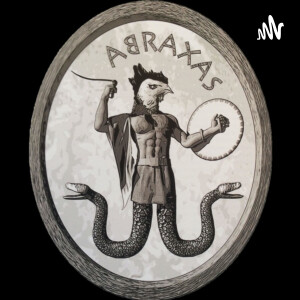
Greco-Roman Origins of Christianity | Robyn Faith Walsh
 2022-11-12
2022-11-12
Download
Right click and do "save link as"
https://www.patreon.com/GnosticInformant
Please Consider joining my Patreon to help finding scholars to bring on. Any amount helps me. Thank you existing Patrons.
Get the Book:
https://www.amazon.com/Origins-Early-...
Robyn Faith Walsh (Ph.D)
https://robynfaithwalsh.com/
Robyn Faith Walsh is an Associate Professor at the University of Miami (UM). She earned her Ph.D. at Brown University in Religions of the Ancient Mediterranean, with a focus on early Christianity, ancient Judaism, and Roman archaeology.
Before coming to UM, Professor Walsh taught at Wheaton College (Mass.), The College of the Holy Cross, and received teaching certificates and pedagogical training at Brown University and Harvard University. She teaches courses on the New Testament, Greco-Roman literature and material culture.
Her first monograph, The Origins of Early Christian Literature: Contextualizing the New Testament within Greco-Roman Literary Culture, was recently published with Cambridge University Press.
https://gnosticinformant--pursuit4kno...
The Course for Mystery Cults by Professor Litwa is NOW AVAILABLE!!! Click the Link for more Details! (Link)
https://gnosticinformant--pursuit4kno...
Conventional approaches to the Synoptic gospels argue that the gospel authors acted as literate spokespersons for their religious communities. Whether described as documenting intra-group 'oral traditions' or preserving the collective perspectives of their fellow Christ-followers, these writers are treated as something akin to the Romantic poet speaking for their Volk - a questionable framework inherited from nineteenth-century German Romanticism. In this book, Robyn Faith Walsh argues that the Synoptic gospels were written by elite cultural producers working within a dynamic cadre of literate specialists, including persons who may or may not have been professed Christians. Comparing a range of ancient literature, her ground-breaking study demonstrates that the gospels are creative works produced by educated elites interested in Judean teachings, practices, and paradoxographical subjects in the aftermath of the Jewish War and in dialogue with the literature of their age. Walsh's study thus bridges the artificial divide between research on the Synoptic gospels and Classics.
The Greco-Roman civilization (/ˌɡriːkoʊˈroʊmən, ˌɡrɛkoʊ-/; also Greco-Roman culture; spelled Graeco-Roman in the Commonwealth), as understood by modern scholars and writers, includes the geographical regions and countries that culturally—and so historically—were directly and intimately influenced by the language, culture, government and religion of the Greeks and Romans. A better-known term is classical civilization. In exact terms the area refers to the "Mediterranean world", the extensive tracts of land centered on the Mediterranean and Black Sea Basins, the "swimming pool and spa" of the Greeks and the Romans, in which those peoples' cultural perceptions, ideas, and sensitivities became dominant in classical antiquity.
That process was aided by the universal adoption of Greek as the language of intellectual culture and commerce in the Eastern Mediterranean and of Latin as the language of public administration and of forensic advocacy, especially in the Western Mediterranean.
Greek and Latin were never the native languages of many or most of the rural peasants, who formed the great majority of the Roman Empire's population, but they became the languages of the urban and cosmopolitan elites and the Empire's lingua franca, even if only as corrupt or multifarious dialects for those who lived within the large territories and populations outside the Macedonian settlements and the Roman colonies. All Roman citizens of note and accomplishment, regardless of their ethnic extractions, spoke and wrote in Greek or Latin. Examples include the Roman jurist and imperial chancellor Ulpian, who was of Phoenician origin; the mathematician and geographer Claudius Ptolemy, who was of Greco-Egyptian origin
view more
More Episodes
01234567891011121314151617
Create your
podcast in
minutes
- Full-featured podcast site
- Unlimited storage and bandwidth
- Comprehensive podcast stats
- Distribute to Apple Podcasts, Spotify, and more
- Make money with your podcast
It is Free
- Privacy Policy
- Cookie Policy
- Terms of Use
- Consent Preferences
- Copyright © 2015-2024 Podbean.com





